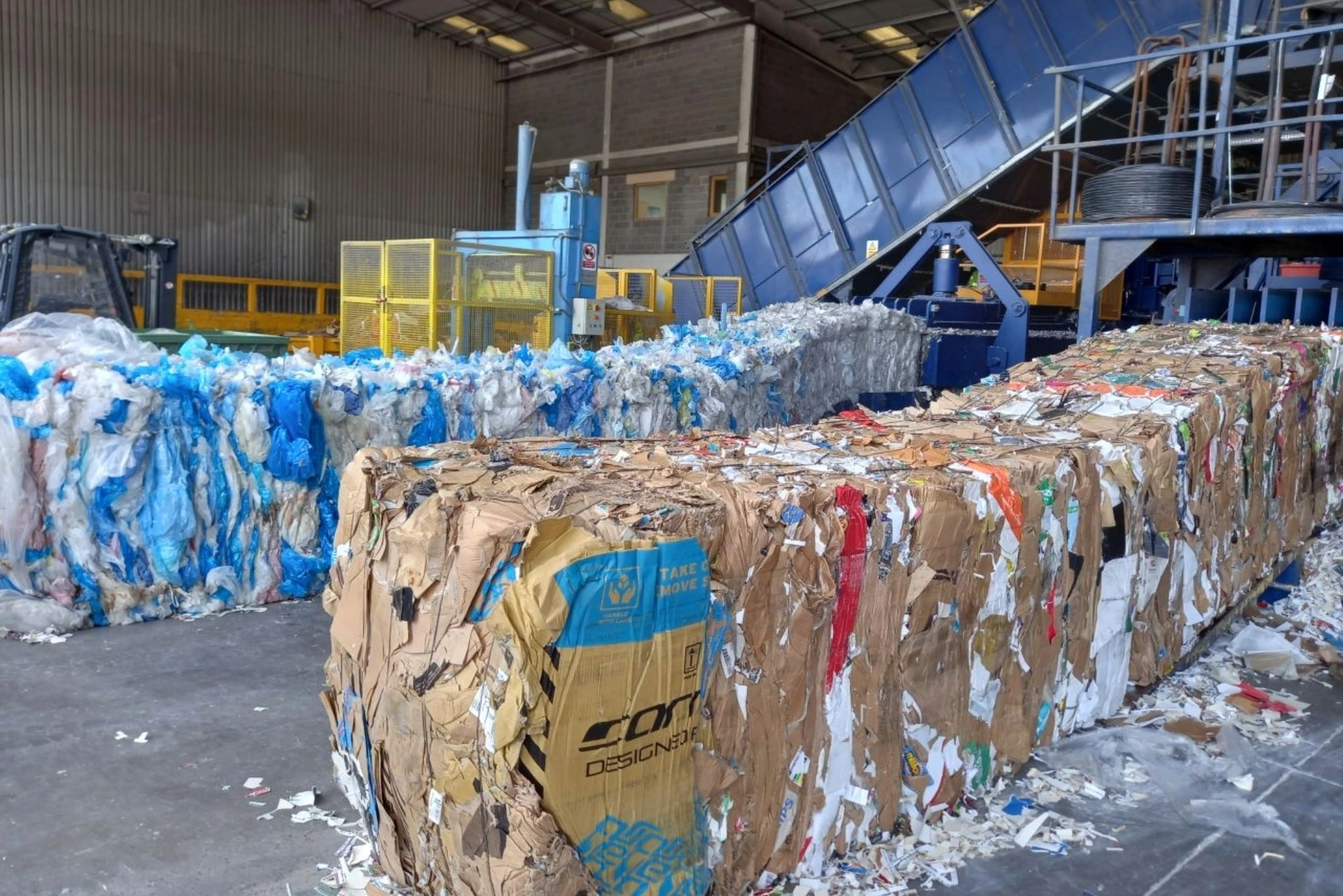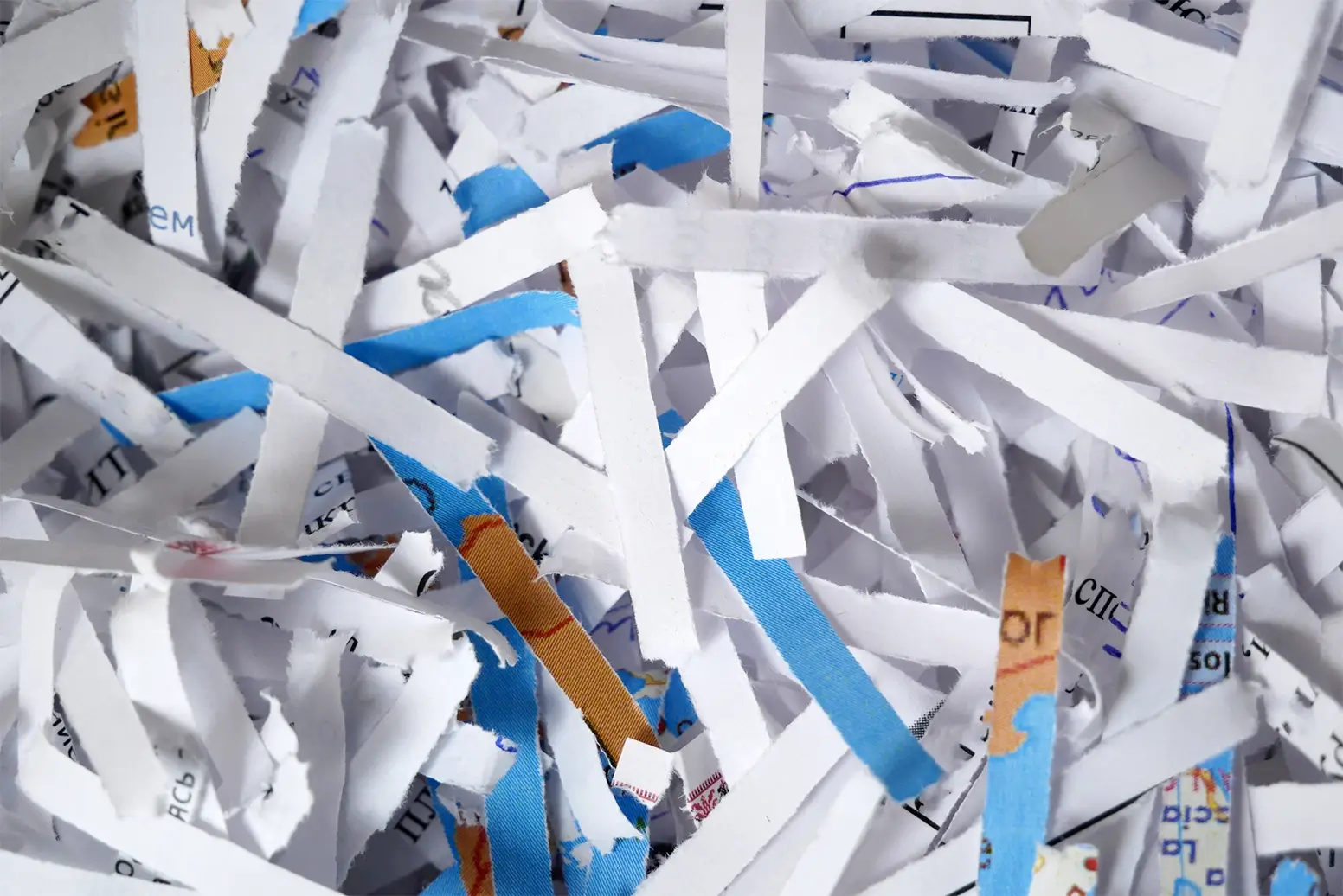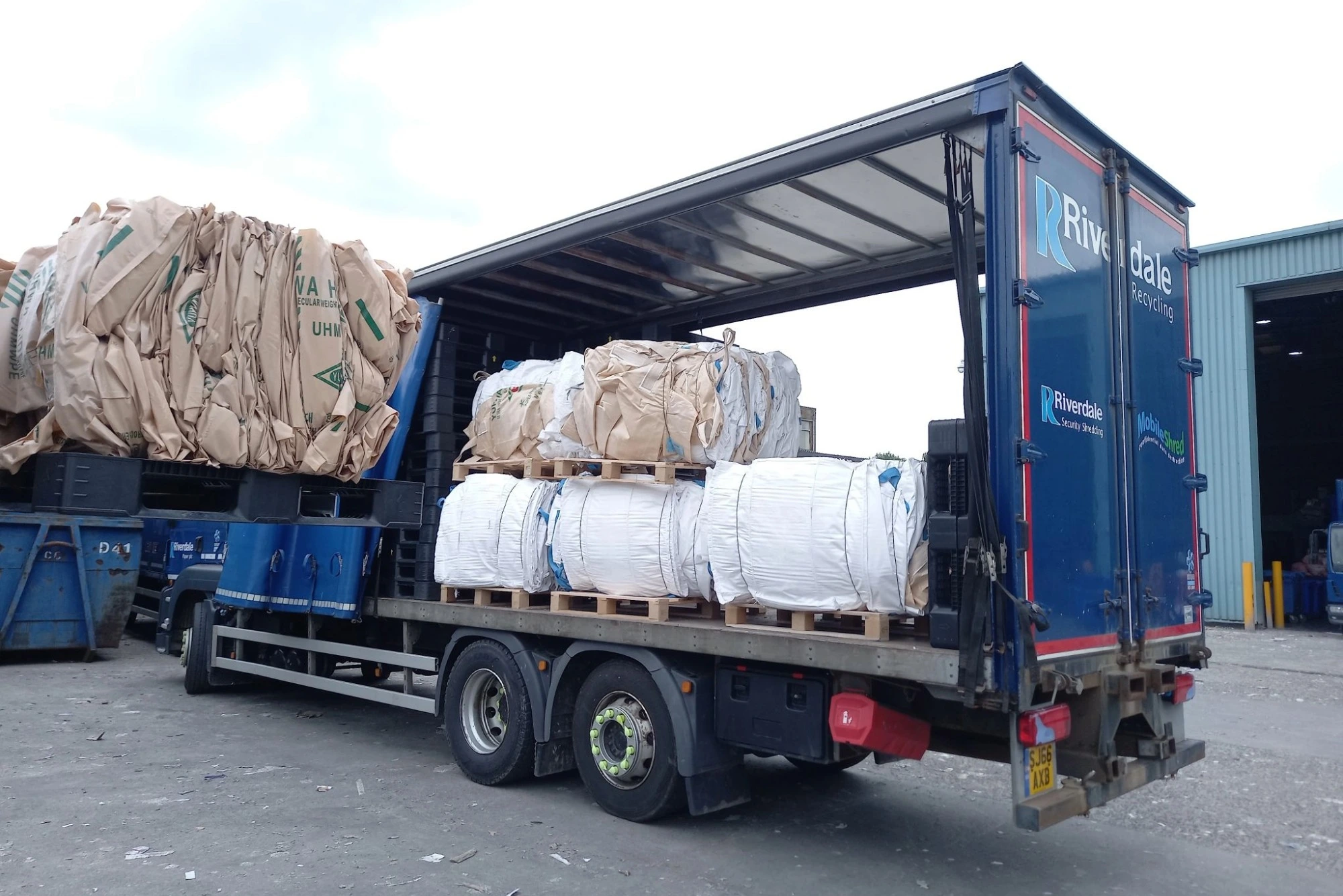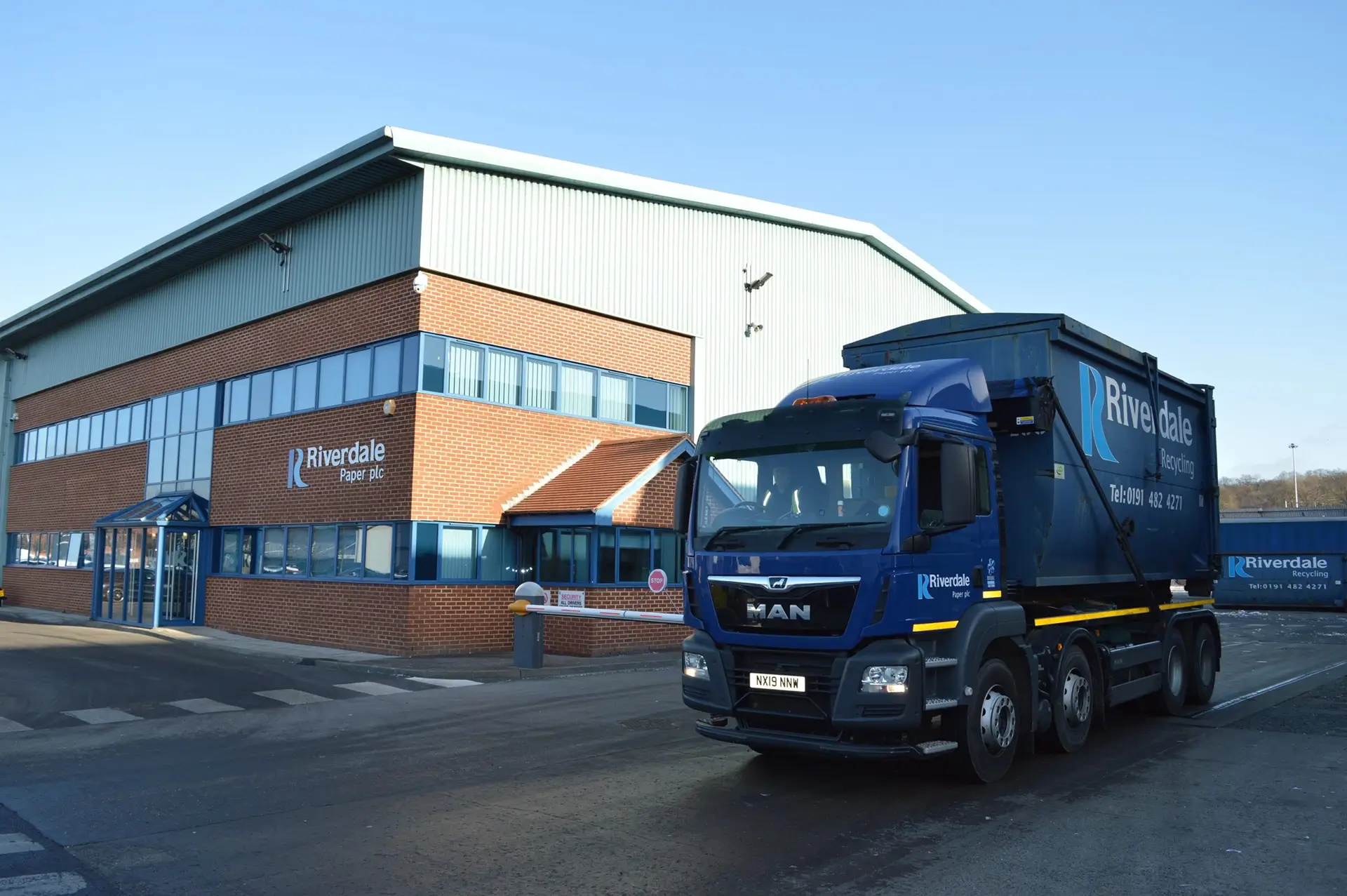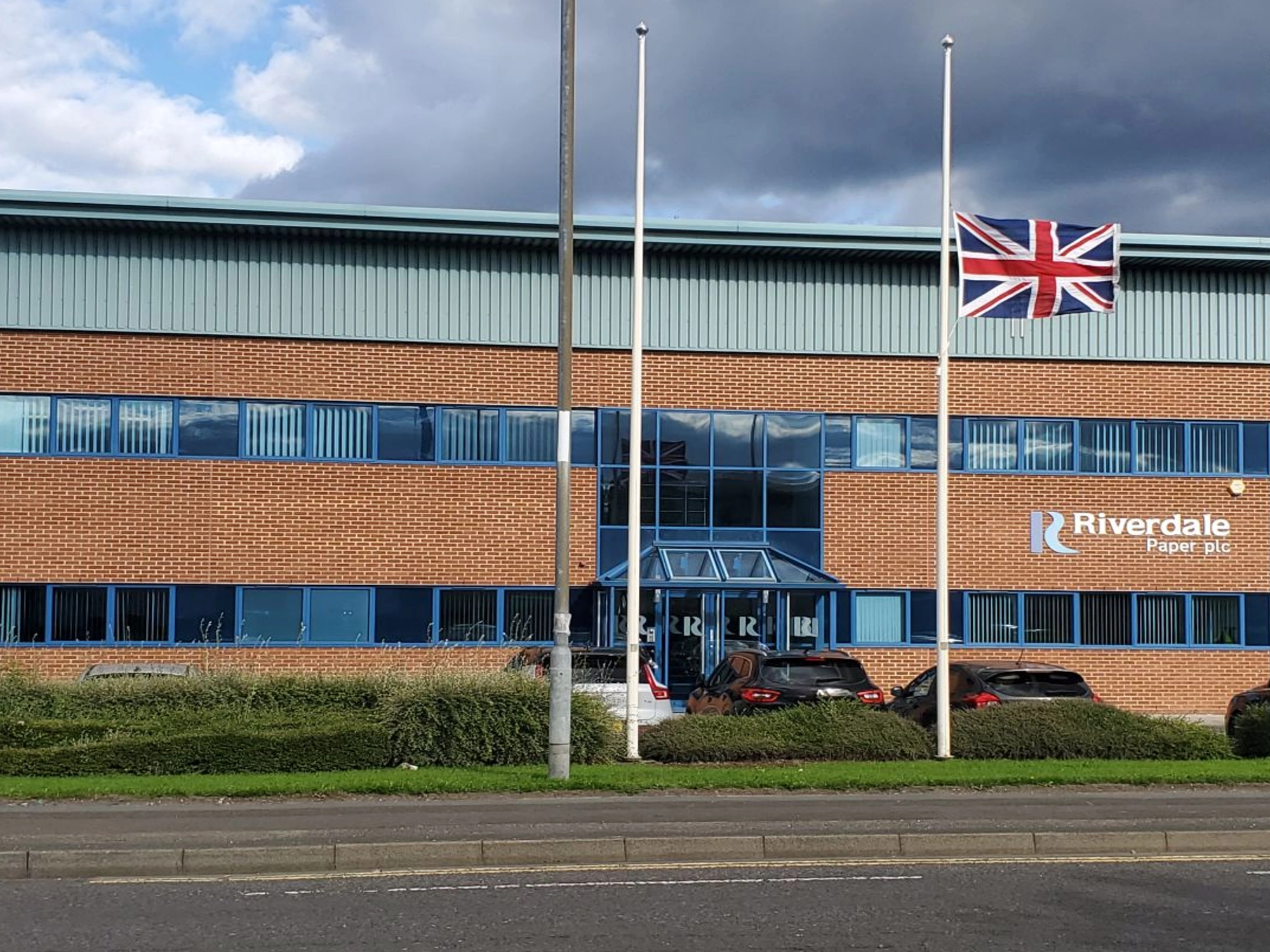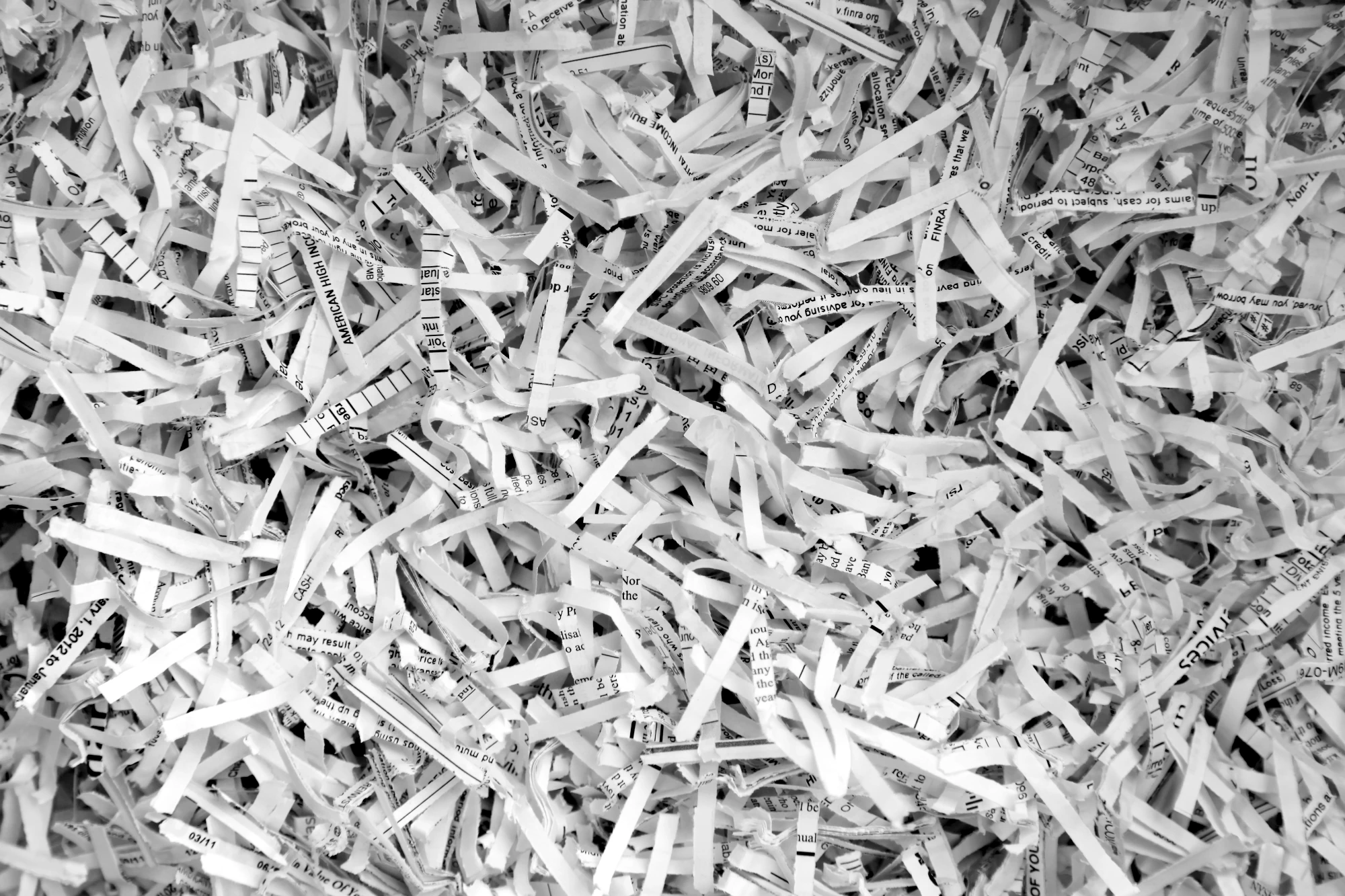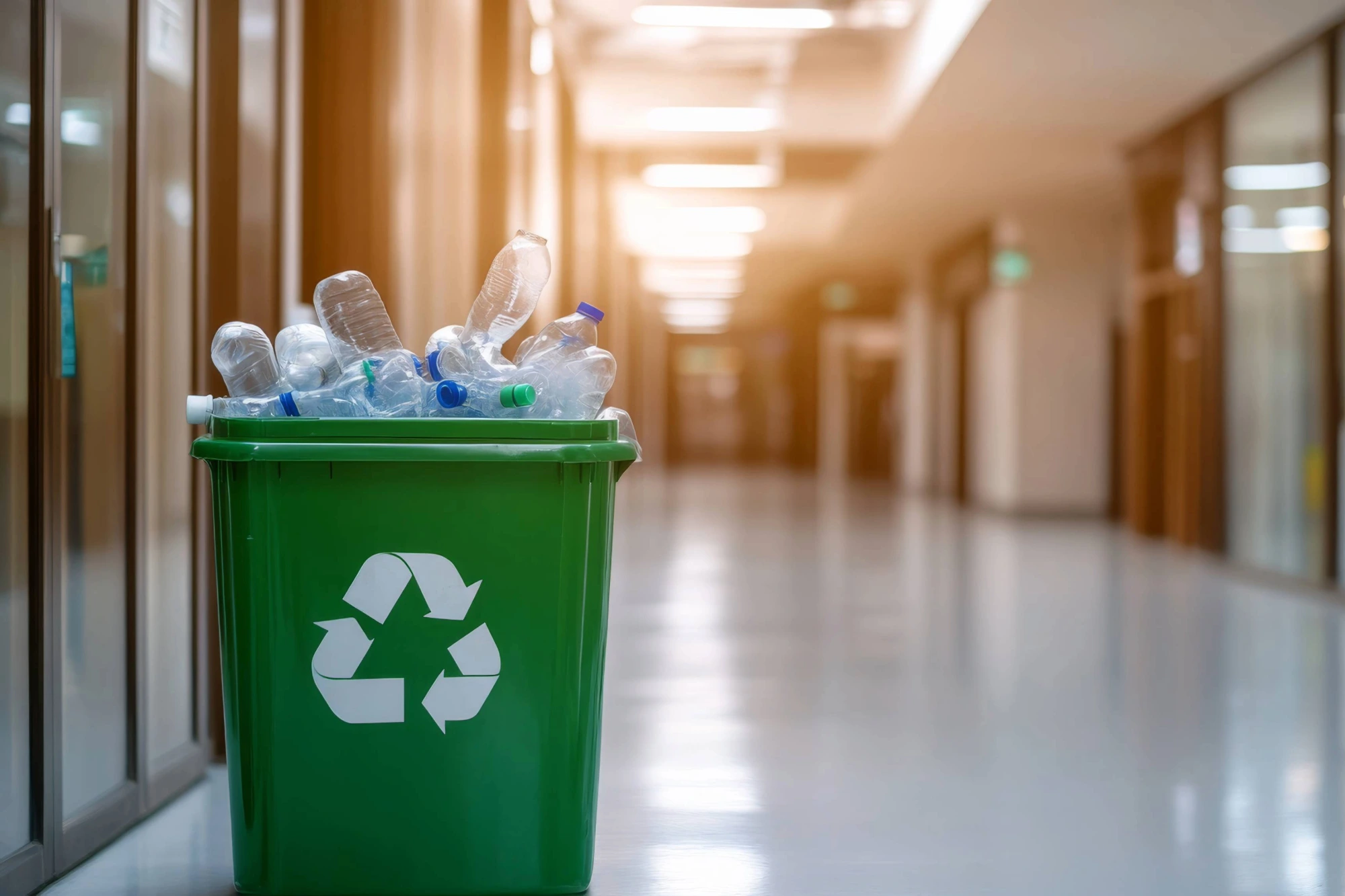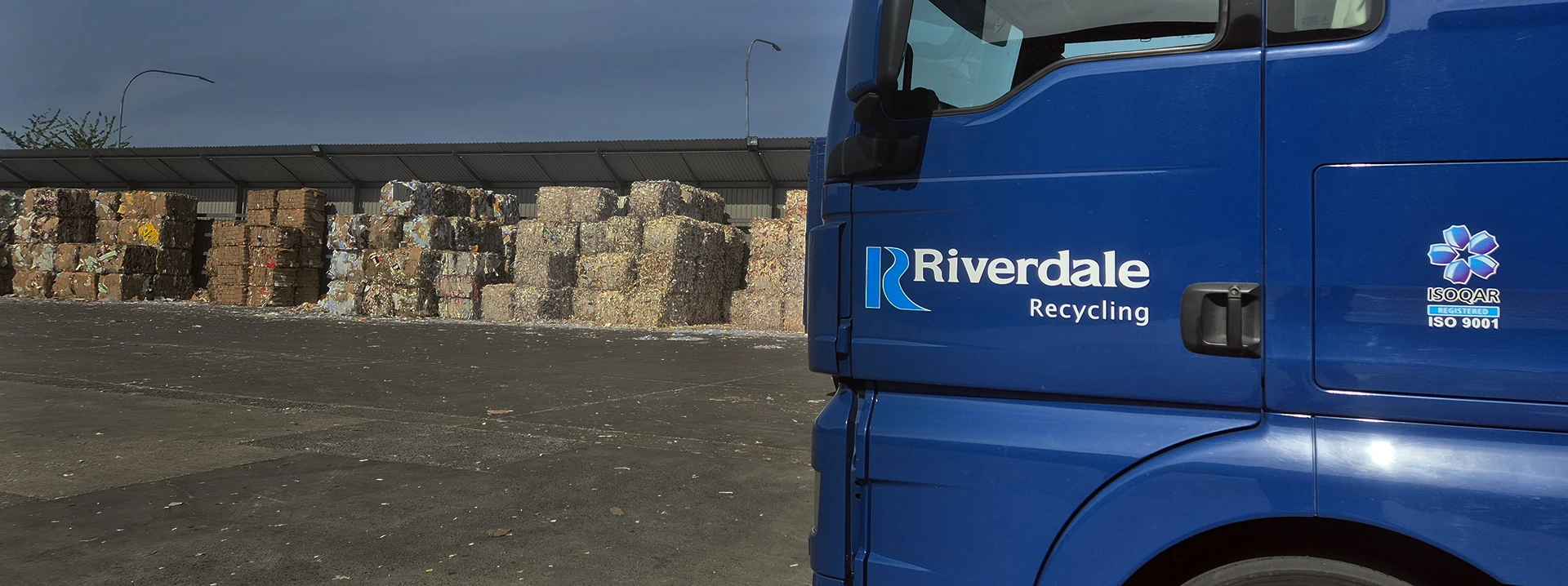Paper
Secure shredding 17 Feb 2025
Types of confidential waste and how to dispose of it correctly
Keeping your business's sensitive information under wraps is more critical than ever and properly managing confidential waste is a cornerstone of this protection.
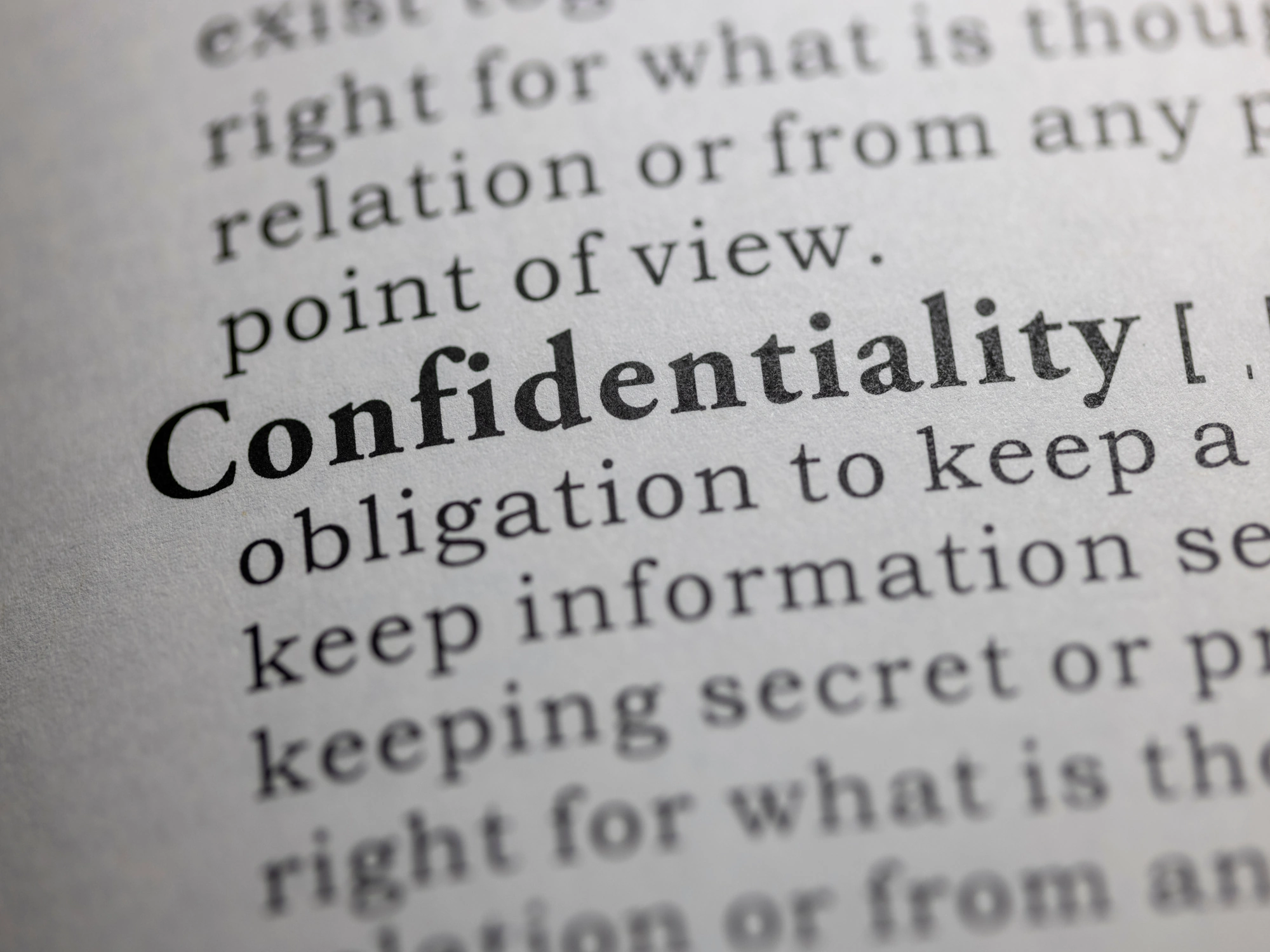
What exactly is confidential waste?
Confidential waste encompasses any form of material, whether physical or digital, that contains sensitive information which, if accessed by unauthorised individuals, could potentially cause harm or compromise the interests of the business, its employees, customers, or partners. This extends beyond mere paper documents and includes a diverse range of formats that businesses routinely generate. The critical factor in defining confidential waste lies in the nature of the information itself and the potential ramifications should it fall into the wrong hands. Even seemingly innocuous documents can become confidential depending on the context and the potential for misuse. For instance, a simple list of names might not appear highly sensitive in isolation, but when combined with other data or accessed by competitors, it could be exploited for targeted marketing or other detrimental purposes. Therefore, a proactive approach to identifying and securely managing such materials is essential for all UK businesses.
UK businesses generate a wide array of confidential waste across various operational areas. Understanding these different types is the first step towards implementing effective disposal strategies.
Here are some common examples:
Personal data
This category includes any documents that hold information relating to an identified or identifiable natural person, as defined under the General Data Protection Regulation (GDPR). This encompasses a broad spectrum of information such as names, addresses, email addresses, phone numbers, National Insurance numbers, dates of birth, medical records, employee files and job application forms. UK businesses have a legal obligation to handle this data securely throughout its entire lifecycle, from collection and processing to its eventual disposal. While businesses are increasingly adopting digital record-keeping systems, the generation of physical documents containing personal data remains prevalent. Printed emails, signed contracts, HR paperwork and customer invoices often contain personal information that necessitates secure disposal when no longer required.
Financial records
These materials contain sensitive financial details about the business or its stakeholders. Examples include bank statements, invoices, credit card information (both customer and company), tax returns, payroll records, financial reports, budgets and audit trails. Improper disposal of this information can lead to financial fraud, identity theft, and significant financial losses for the business and the individuals involved.
Legal documents
This category comprises contracts with suppliers, customers, and employees, legal correspondence, litigation documents, intellectual property records (patents, trademarks), and any other documents containing privileged or legally sensitive information. Maintaining the confidentiality of these documents is crucial to protect the business’s legal rights and prevent potential disputes or breaches of confidentiality agreements.
Commercially sensitive business data
This type of confidential waste pertains to information that could harm a business’s competitive advantage if disclosed to unauthorised parties. It includes business plans, internal reports, customer lists, pricing strategies, marketing plans, trade secrets and details of upcoming projects. The potential for competitors to exploit such information emphasises the need for secure disposal methods.
Digital storage media
Confidential waste also includes various forms of digital storage devices that may contain sensitive information. This includes CDs, DVDs, USB drives, external hard drives and even SIM cards from mobile phones. Simply deleting files from these devices is often insufficient to ensure data security, as the information can often be recovered using specialised software. Physical destruction through methods like shredding or degaussing is often necessary to render the data irretrievable. The risk of data residing on old or discarded IT equipment is often overlooked. While businesses may focus on securing their active computer systems, retired devices like old hard drives and laptops can still hold significant amounts of sensitive data that can be recovered even after formatting.
Beyond the categories listed above, other materials may require confidential disposal depending on the specific nature of the business. This can include prototypes of new products, confidential correspondence with sensitive content, internal memos containing privileged information and even items like old uniforms or ID badges that could be used for impersonation if not properly destroyed.
What are the potential consequences?
As previously mentioned, breaches of GDPR due to inadequate disposal of personal data can lead to substantial fines. Similarly, non-compliance with the Environmental Protection Act 1990, including the failure to use licensed waste carriers or to manage waste securely, can also result in financial penalties and legal action.
Furthermore, news of data breaches and the mishandling of sensitive information spreads rapidly. A failure to securely dispose of confidential waste that results in a data breach can severely damage a business’s reputation.
Businesses that fail to protect confidential information through proper disposal methods may also face legal action from individuals whose personal data has been compromised. This can result in costly lawsuits and compensation claims.
The most direct risk of improper confidential waste disposal is the potential for sensitive information to fall into the wrong hands, leading to security breaches and data theft. This can result in identity theft, financial fraud, the exposure of trade secrets and other malicious activities that can have devastating consequences.
21% of data breaches are caused by human errors that occur in day-to-day business operations.
How do I correctly dispose of confidential waste?
Protecting your business and stakeholders means taking a proactive and secure approach to confidential waste disposal. We recommend the following:
- The most reliable way to ensure secure disposal is by using a professional confidential waste management company like ourselves
- Keep confidential waste separate from your regular rubbish. Use dedicated, lockable waste bins or bags and make sure your team knows to double-check documents before disposing of them to avoid accidental data leaks
- Store your confidential waste bins in a secure area away from public access
- When it’s time for collection, ensure you’re using licensed waste carriers who are authorised to handle confidential waste. This is a legal requirement under the Environmental Protection Act
- Always obtain a waste transfer note when your confidential waste is collected. Crucially, ask for a Certificate of Destruction after the waste has been securely processed. This provides you with documented proof of compliant disposal
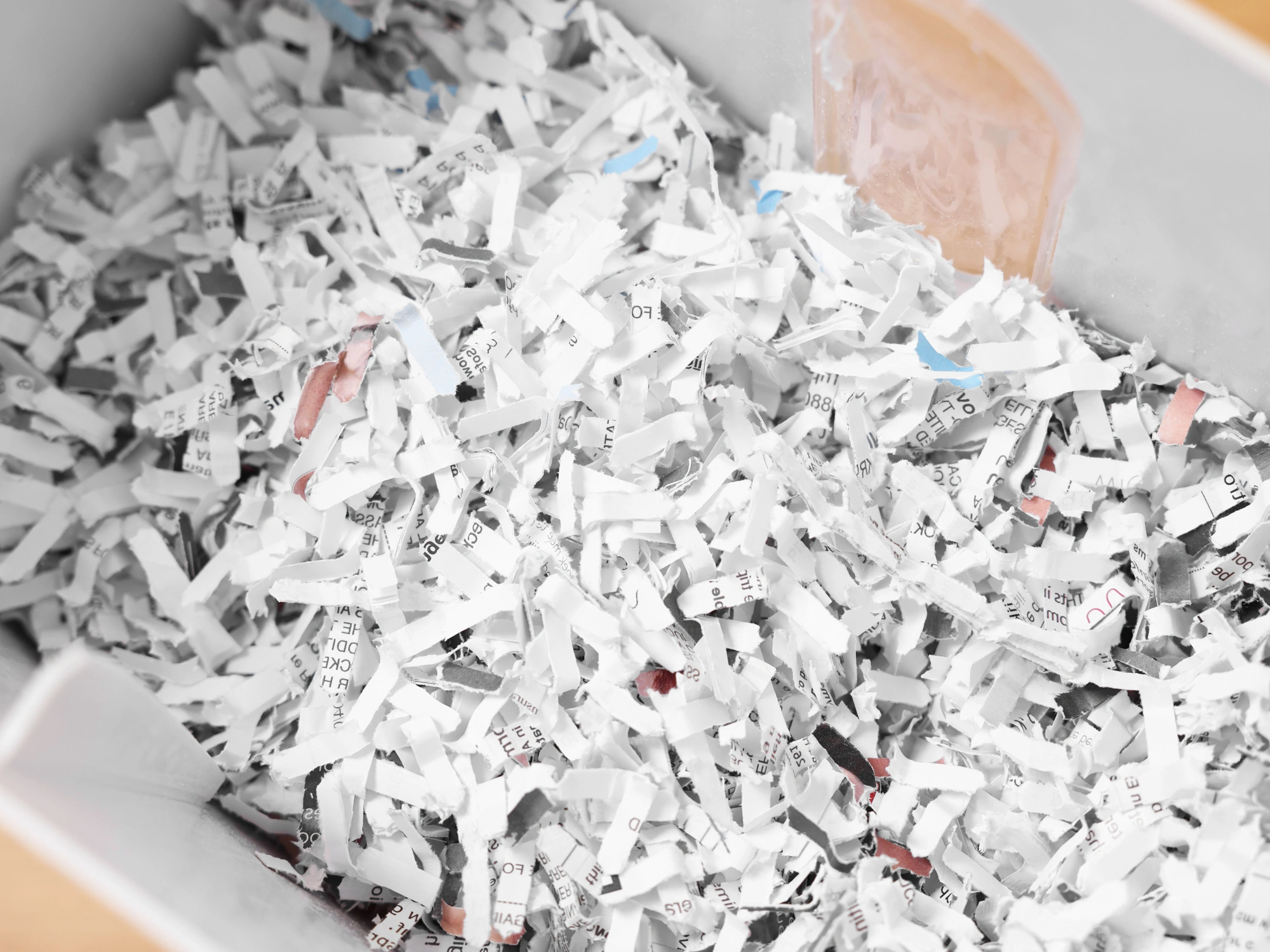
Secure shredding
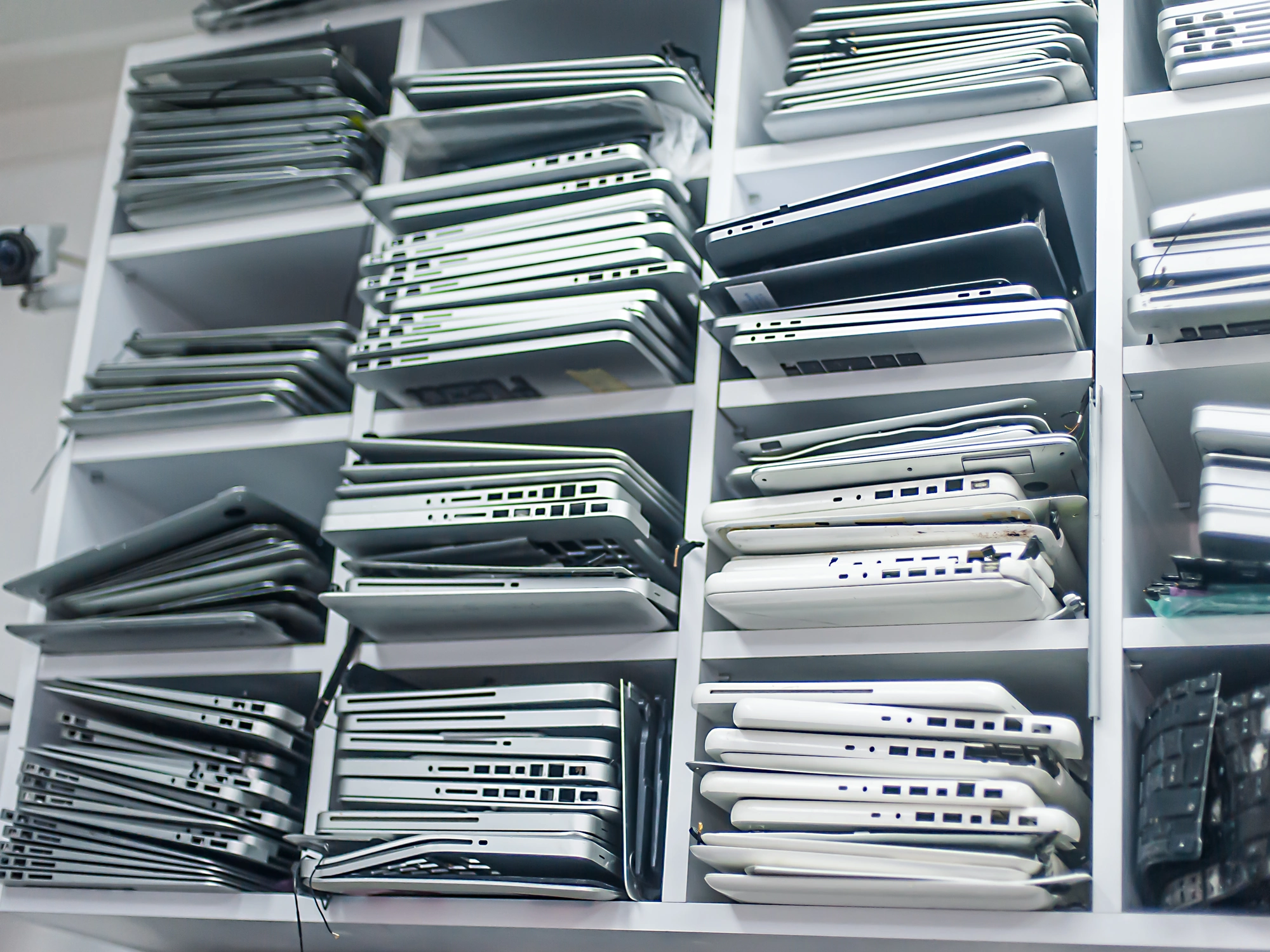
IT asset disposal
How can Riverdale Recycling help?
We provide UK businesses with a comprehensive solution for the secure disposal of confidential waste. Our services include the provision of secure collection containers suitable for various types of confidential materials. We offer flexible collection services that can be tailored to meet the specific scheduling needs of your business. Our licensed and vetted team ensures the secure transportation of your confidential waste from your premises to our secure facilities. At our sites, we offer secure shredding of documents to ensure that sensitive paper-based information is completely irretrievable. We also offer on-site shredding for complete peace of mind.
Furthermore, we have the capability to securely destroy IT assets such as hard drives and laptops, ensuring that any data stored on these devices is permanently eradicated. Upon completion of the destruction process, we will issue a Certificate of Destruction, providing you with documented proof of compliant disposal for your records.
Contact us to discuss your specific confidential waste disposal requirements and learn how we can help you handle your sensitive information securely and professionally.
More from our blog
Serving UK businesses for over 40 years
We have built a legacy of expert waste management, driving innovation in sustainable recycling solutions.
Operating a Zero Waste to Landfill policy
We strive to eliminate landfill reliance through meticulous sorting, processing and innovative waste-to-energy services.
North East based, delivering nationwide services
We're a North East company with a national footprint, supporting businesses across the UK.
Expert knowledge with a personalised service
We tailor our waste management solutions to meet your unique business needs, offering ongoing support.
